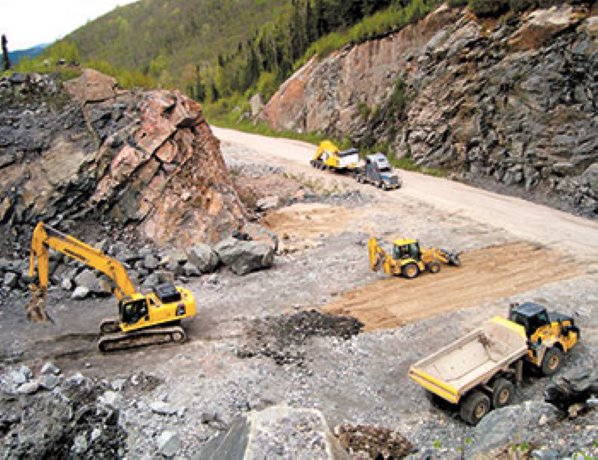Driller/blasters are in short supply in Newfoundland and Labrador and that supply will dwindle more unless the industry figures out how to draw new faces to the field.
The scarcity is especially bad news for many roadbuilders because driller/blasters are essential on many contracts, said Jim Organ of the Heavy Civil Association of Newfoundland and Labrador (HCANL).
“There is a lot of rock in Newfoundland. Whether you’re doing bridgework or roadwork, even in subdivisions, often there is a fair bit of blasting involved,” he said.
Organ was recently hired as new executive director of the association, which represents many of the province’s roadbuilders and sewer and water contractors.
Making the situation more urgent is that most driller/blasters in the province are older than 60 and nearing retirement, he pointed out.
To meet the province’s apprenticeship requirements, driller/blasters have had to do 20 weeks in class and hundreds of hours of practical training.
The province, however, has proposed cutting the program to 12 weeks, in an attempt to draw more people to the trade.
That might not be enough, however, to curb shortages, said Organ.
“We would like to see more on-the-job training and less in-class time,” he said.
Organ met with government officials recently to discuss changes, including a stripped down version of the program’s curriculum that eliminates some academic coursework.
“We want to make it as cost-effective and efficient for people considering the profession,” he said.
Safety training, however, is not on the chopping block, he emphasized.
As it stands, roadbuilders often have to subcontract to other contractors for drilling and blasting work.
The scarcity of qualified tradespeople will worsen though as many skilled trades will be drawn away from roadbuilding to higher paying jobs at mega-projects like the Lower Churchill River hydroelectric project at Muskrat Falls and Vale Inco’s Long Harbour ore smelter, said Organ.
“We’ve lost a lot of our people to higher paying jobs at these kinds of mega-projects,” he said.
Another issue affecting water, sewer and roadbuilders in Newfoundland is changes to Fisheries and Oceans Canada’s regulations concerning construction around fresh and salt water habitats.
The new rules might result in a bit of a relaxation of red tape for builders.
This means shorter wait periods for final construction approvals from the department, explained Organ.
Currently, builders must submit a formal application to the federal department for review and approval when working around a water habitat.
The focus is to leave any water area undisturbed, whether it has fish in it or not, he said..
The new rules are geared to the protection of fish habitat.
Organ, who has extensive experience with both private and public sectors throughout Atlantic Canada, faces another challenge in his new role as executive director of the HCANL.
The province recently revised the Labour Relations Act to allow a company’s employees to certify without a vote if 65 per cent of the employees sign a statement from the union favoring certification.
The employer has 10 days to dispute the certification move.
In the past, a private vote was required for certification.
“This affects not just our association, but the whole business community in Newfoundland,” said Organ, adding that he believes the only way to determine what a company’s employees really want is through a secret ballot.
“We are lobbying for changes because of the negative impact we think this will bring,” he added, noting the HCANL has both unionized and non-union contractors.
The association also wants to change legislation concerning liquidated damages in which contractors pay penalties for late completion — even in circumstances where those contractors were not at fault for the delays, he said.
Organ also wants to increase membership in the HCANL.
Non-members gain much from the association’s lobby efforts to improve the lot of the sector’s contractors, so it stands to reason that they should be part of the association, he said.










Recent Comments
comments for this post are closed